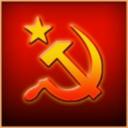
Youth Community

Aid Ukraine

Order Why Israel Resources

Support our ministry

Subscribe newsletter

Israel & Christians Today

Biblical understanding about Israel
The Real Saviours of Soviet Jewry
Gorbachev is not the man who 'let our people go' from Soviet Russia. An article for the 20th anniversary of the failed coup against him.
by Giulio Meotti *** This week marks the 20th anniversary of the failed coup against the former Soviet president Mikhail Gorbachev, which precipitated the dissolution of the USSR in December of the same year. The Soviet implosion opened the door to a massive aliyah of Russian Jews to Israel. On the eve of the Bolshevik Revolution, the largest, most rooted and most culturally vital Jewish community in the world was that of Russia. Seventy years later, with the demise of Communism, the Jewish community of Russia was shrunken and assimilating. Immediately upon his resignation, Gorbachev was proclaimed a hero by the “establishment" leadership of the Soviet Jewry movement. Some US rabbis declared that Gorbachev was “the man who let my people go”. It’s a false, perverted image of the Soviet tragedy.
During the first years of Gorbachev’s rule, the number of Jews exiting plummeted and key refuseniks such as Ida Nudel and Vladimir Slepak continued to have their exit visas denied. Others, like Yosef Begun, remained in the Gulag. Gorbachev did not speak out against growing anti-Semitism in the Soviet Union. It is completely inaccurate to credit Gorbachev with the Jewish mass emigration.
The credit belongs to those who forced Gorbachev’s hand. When the USSR crumbled economically, Gorbachev allowed emigration to obtain the assistance he desperately needed. Prisoners of Zion, refuseniks and dissidents - men and women who spent years languishing in Soviet prisons and labor camps - they, too, forced Gorbachev’s anti-Semitic hand. People like Boris Kochubiyevsky, one of the first refuseniks who had declared: “I am prepared to go to Israel, even if it means going on foot”. Or Yosef Mendelevich, who spent 11 years in the Gulag. On Pessah, he re-enacted the Exodus story by leading his cellmates over puddles of water, reminiscent of the splitting of the Red Sea. Women like Ida Nudel, who was exiled to Siberia for hanging a poster from her Moscow balcony: “Give me my exit visa”. Andrei Sakharov and other dissidents, such as the Helsinki Accords' monitors, unwaveringly supported the basic right of free emigration.
Many Russian heroes went to live in the Jewish towns of Judea and Samaria against Gorbachev's idea that Jews should not settle beyond the Green Line. At the entrance of the Giv’on Hahadasha community, a suburb of reunited Jerusalem, there is a memorial stone erected to one of the founders of the village, who was killed by Arab terrorists. His name is Zyama Abolnik. The Russian artist Mordechai Lipkin was killed in Tekoa in Gush Etzion. Mordechai Lapid, a Soviet refusnik, was killed in Kiryat Arba.
Gorbachev did not of his own volition pull the lever to open the doors. It was others who forced his hand, leaving him little choice but to allow it to happen. Those others are the saviors of Soviet Jewry.
To write the book “A New Shoah. The Untold Story of Israel's Victims of Terrorism”, I interviewed many Soviet Jews who lost relatives due to Arab terrorism. People like Faina Dorfman, whose grandfather, a rabbi, was burned to death by the Nazi Einsatzgruppen in Russia. She lost her only daughter in a terrorist attack on a nightclub in Tel Aviv, but continues to believe in the Hebrew saying "Yihye besseder", meaning "everything will turn out well”. Galina Fish lost her husband Avraham to terror on the road to Nokdim in Gush Etzion. He was born in Soviet Union in a time when very few families raised their children as observant Jews. They were afraid that the Bolsheviks would accuse them of “Zionist propaganda”. Or Miriam Gurov, who also lost her husband in Gush Etzion.
In the Soviet Union they had nothing but their typewriters, which they used to translate the samizdat, or clandestine manifestos, inciting the people to resistance and rebellion. It was the power of the Exodus. The power of Jewish dissidents who had the special serenity of those who know they are in the right. It was a badge of honor to risk prison on behalf of Jewish settlement in the land of Israel.
Source: http://www.israelnationalnews.com/Articles/Article.aspx/10514



